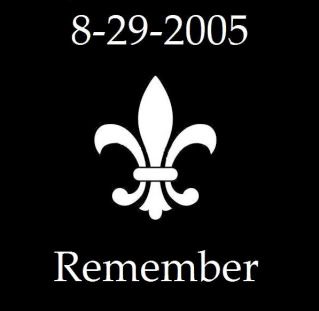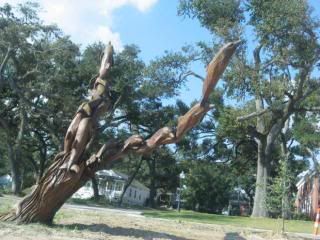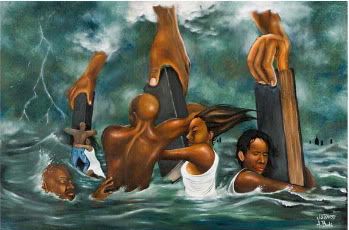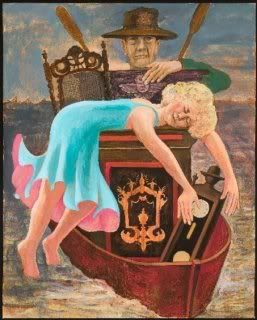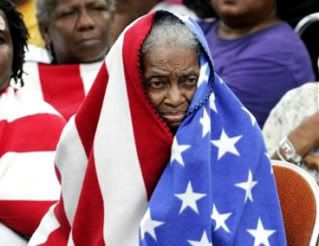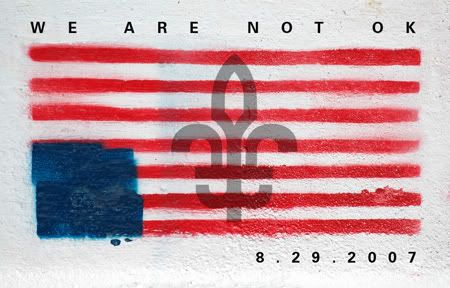There’s really nothing I can say to comment on this. You just have to read it.
It happened in America: Katrina’s secret jail
When the storm hit, Zeitoun stayed, to protect his house, help friends and clients, and watch over properties he and Kathy owned: their office building and houses bought as investments. Kathy and their four children evacuated to Baton Rouge.Zeitoun weathered the storm’s harrowing landfall, and ended up in a tent on his house’s roof. He dug a secondhand canoe out of the garage and began paddling around, seeing how he could help. He spent the first days aiding neighbors and strangers, saving the life of at least one person trapped in her house, and even feeding stranded dogs.
Then the standing feet of water became toxic with organic material and spilled pollutants, his meetings with people became more fraught and weird, he saw his first body and his first criminal entrepreneurs, and decided it was time to go. And that’s when the unnatural disaster happened.
On Tuesday, Sept. 6, 2005, armed and badged black-uniformed men and a tall woman in a power boat appeared at the door of one of his properties that he, his tenant, and two others were using as a meeting place because it still had a working phone. Zeitoun was in the middle of a call with his brother Ahmad, a ship captain, calling from Spain to repeat his pleas to Zeitoun to leave town.
With no questions asked and no questions allowed, Zeitoun and the others were handcuffed and shackled at automatic weapon-point, dropped into the boat, and taken away; the officers didn’t secure the house or treat it as a crime scene and left it unlocked, which meant it was eventually completely stripped and looted.
Zeitoun documents a little-known fact: the existence of “Camp Greyhound,” an outdoor jail built in New Orleans’ central bus station within hours of the hurricane’s landfall at the behest of the federal Department of Homeland Security and FEMA. Similar to Guantanamo Bay, Camp Greyhound (the guards’ name for it) was a kennel, runs of wire fencing and concrete flooring; there was nothing to sit or sleep on, and toilet facilities were portables outside the enclosures. Power was provided by a running diesel locomotive parked within yards of the cages, providing a continuous deafening hum and diesel pall.
Zeitoun was not formally charged, was not read Miranda rights, was not allowed a phone call. He was physically and verbally abused, pepper sprayed, strip-and body-cavity searched; and was accused of being a “terrorist” during his processing at the “camp.” The details of his captivity only become increasingly outrageous.
Fellow prisoners he was able to talk to included a New Orleans firefighter ordered to stay in the city to work who was arrested in his own yard, and a Houston sanitation worker whose company contracted to help in the cleanup effort – arrested wearing his work uniform, possessing ID, and with the keys to his garbage truck in his hand.
Prisoners included Marlene Maten, 73-year-old diabetic deaconess at Resurrection Mission Baptist Church, arrested as she carried a package of sausages from a cooler in her car, parked beside the hotel to which she was returning.
Marlene, along with Zeitoun and hundreds of others from Camp Greyhound, ended up at maximum security Elayn Hunt Correctional Center, in St. Gabriel, La., 70 miles from New Orleans. They were FEMA prisoners: FEMA rented state prison space and Camp Greyhound transfers were, according to prison staff, “FEMA’s problem.” Again: transferred with no charges, no information, no opportunity to make a phone call or talk to a lawyer.
Thanks to a volunteer prison missionary who agreed to call Kathy, she found out Zeitoun was alive. (His family had assumed him dead once contact was broken for weeks.) She immediately hired a lawyer, who found out there would finally be a hearing on Zeitoun’s “case.” However, when Kathy contacted the Hunt center to find out where the hearing would be held, she was told that location, and whether Zeitoun was even at the prison, was “private information.”
Released from Hunt on Sept. 29, 2005 – after paying a $75,000 bail – Zeitoun was lucky, compared with the three men he was arrested with. Todd, Nasser and Ronnie spent, respectively, five months, six months and eight months in maximum security Hunt prison. All charges against all of them were dropped.


